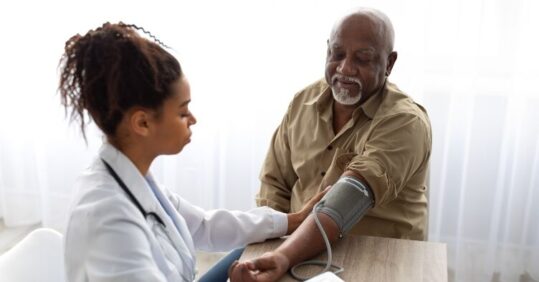A nurse-led project has been launched to try and address high blood pressure among black African and Caribbean people using a shared decision making tool
Using funding from the Burdett Trust, the Race Equality Foundation (REF) project aims to develop and pilot a nurse-led motivational change model for managing the condition.
Related Article: Sign up to Nursing in Practice’s free virtual cardiology event
According to the REF, elevated blood pressure is often not addressed within the black African and Caribbean Communities for reasons including ‘a lack of knowledge, certain beliefs about the condition and symptoms, healthcare messaging not landing, and the belief that a diagnosis will mean a lifetime of medication’.
Professor Graham MacGregor, chairman of Blood Pressure UK says: ‘If you are of black African or Caribbean origin and live in the UK you’re more likely than people from other cultures to have certain health conditions, including high blood pressure (hypertension) which kills thousands of people every year in this country and is almost entirely preventable.
Related Article: Lipid management: What primary care nurses need to know
The project will involve blood pressure testing in the community, the development of a ‘Heart Age Tool’ specifically for black communities, and training healthcare professionals.
The project is a collaboration between Smart Health, Younger Lives, and Blood Pressure UK and will run until August 31st 2023.
Jabeer Butt OBE, CEO of the REF said: ‘We know that improved health messaging and better engagement can improve awareness of high blood pressure and how it can be managed.
Related Article: People with long-term conditions should have BMI check every year, says NICE
‘We saw this in action through our previous project where we worked in community settings, such as barbershops, to carry out blood pressure testing and raise awareness amongst Black African and Caribbean men.
‘This project will build on that work, as well as the work of our project partners, to help those people at highest risk to take control of their health.’






